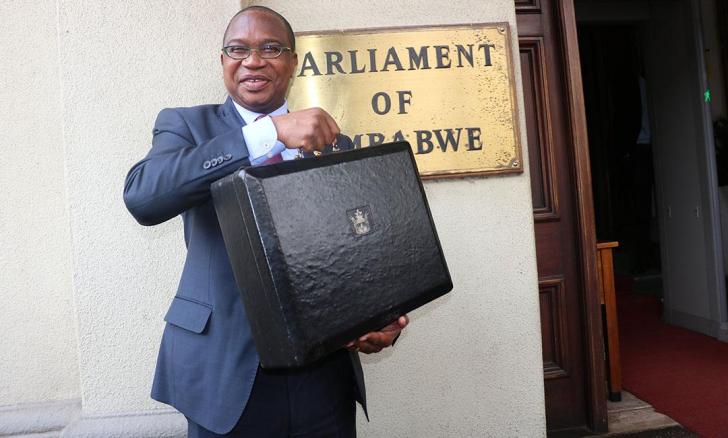News / National
Mthuli Ncube's 2025 Budget to increase cost of doing business
6 hrs ago | Views

Leading retailer OK Zimbabwe has expressed concern that the 2025 National Budget, as outlined by Finance Minister Prof Mthuli Ncube, will increase business costs, further exacerbating an already challenging operating environment.
The budget, presented last month, introduced a series of new tax measures that have sparked significant debate within the business community. Critics argue that these measures are repetitive, placing even greater pressure on the already heavily taxed formal sector, while largely overlooking the informal sector. One of the main points of contention is that the tax measures are being applied redundantly across the same value chain, which is expected to drive up production costs and undermine Zimbabwe's export competitiveness.
A particularly contentious decision has been the imposition of taxes on betting game winners, forcing them to surrender a portion of their earnings to the taxman. This has added to the growing concerns over the increasing burden on businesses and individuals alike.
Herbert Nkala, Chairman of OK Zimbabwe, has weighed in on the matter, warning that the new tax proposals will significantly impact the cost of doing business in the year ahead. "The tax proposals in the 2025 budget statement are likely to drive up costs and lower margins realized on affected product lines such as alcoholic and deli products," Nkala said. He added that, as the company moves into the second half of the trading year, cost optimization and product diversification will be key to maintaining and improving growth.
Despite these looming challenges, OK Zimbabwe has managed to achieve growth during the half-year period. The retailer reported a 27.69% increase in sales volumes compared to the previous period, while its gross profit margin improved from 16.83% to 19.64%. A key driver behind this growth was the successful OK Grand Challenge promotion, which included OK Mart stores for the first time and led to increased bulk sales.
However, the company also faced rising operational costs, with other expenses increasing by 16.29%, from US$17.3 million in the previous period to US$20.17 million in the current period. A major contributor to this increase was the higher cost of energy, which surged from US$5 million to US$8.2 million.
The retail giant's concerns about the 2025 budget echo the broader frustrations within the business community, which is calling for a more balanced approach to taxation that supports growth and reduces the burden on formal businesses. As Zimbabwe faces a challenging economic landscape, the government's fiscal policies will continue to be scrutinized, particularly regarding their impact on the cost of doing business and overall economic competitiveness.
The budget, presented last month, introduced a series of new tax measures that have sparked significant debate within the business community. Critics argue that these measures are repetitive, placing even greater pressure on the already heavily taxed formal sector, while largely overlooking the informal sector. One of the main points of contention is that the tax measures are being applied redundantly across the same value chain, which is expected to drive up production costs and undermine Zimbabwe's export competitiveness.
A particularly contentious decision has been the imposition of taxes on betting game winners, forcing them to surrender a portion of their earnings to the taxman. This has added to the growing concerns over the increasing burden on businesses and individuals alike.
Herbert Nkala, Chairman of OK Zimbabwe, has weighed in on the matter, warning that the new tax proposals will significantly impact the cost of doing business in the year ahead. "The tax proposals in the 2025 budget statement are likely to drive up costs and lower margins realized on affected product lines such as alcoholic and deli products," Nkala said. He added that, as the company moves into the second half of the trading year, cost optimization and product diversification will be key to maintaining and improving growth.
Despite these looming challenges, OK Zimbabwe has managed to achieve growth during the half-year period. The retailer reported a 27.69% increase in sales volumes compared to the previous period, while its gross profit margin improved from 16.83% to 19.64%. A key driver behind this growth was the successful OK Grand Challenge promotion, which included OK Mart stores for the first time and led to increased bulk sales.
However, the company also faced rising operational costs, with other expenses increasing by 16.29%, from US$17.3 million in the previous period to US$20.17 million in the current period. A major contributor to this increase was the higher cost of energy, which surged from US$5 million to US$8.2 million.
The retail giant's concerns about the 2025 budget echo the broader frustrations within the business community, which is calling for a more balanced approach to taxation that supports growth and reduces the burden on formal businesses. As Zimbabwe faces a challenging economic landscape, the government's fiscal policies will continue to be scrutinized, particularly regarding their impact on the cost of doing business and overall economic competitiveness.
Source - the chronicle




























